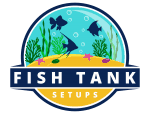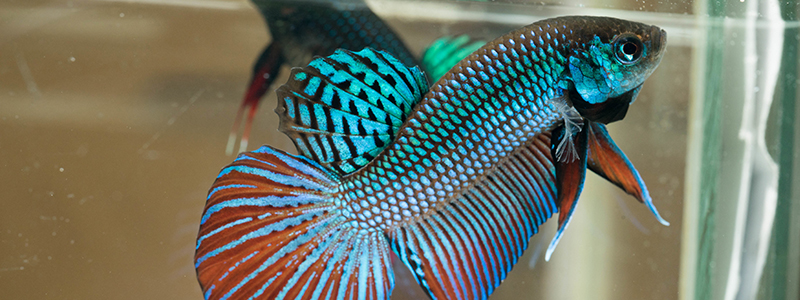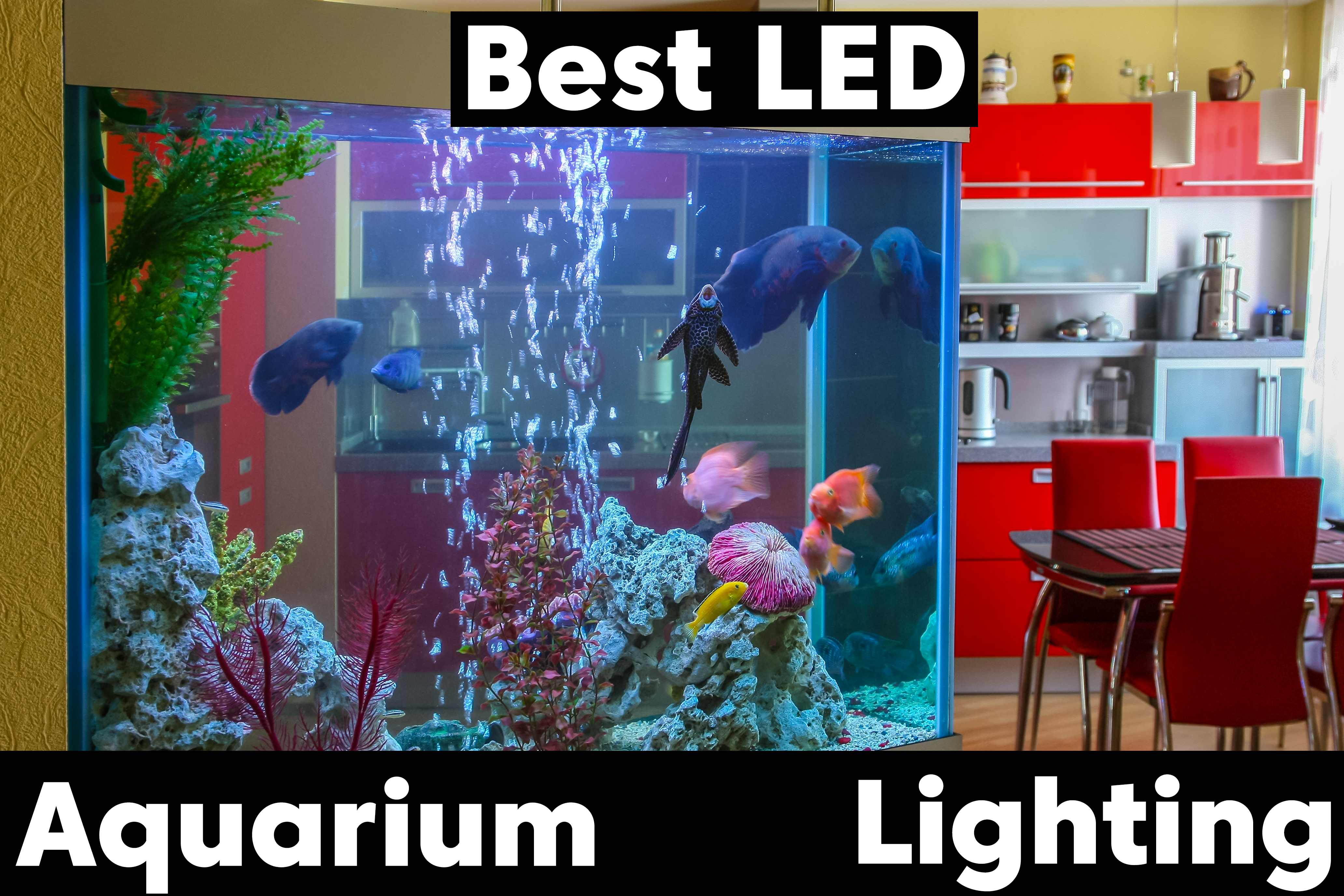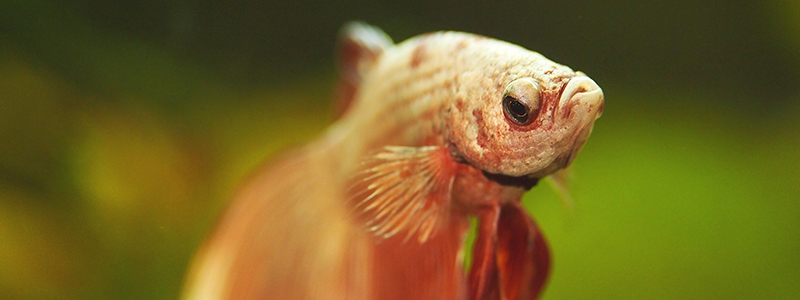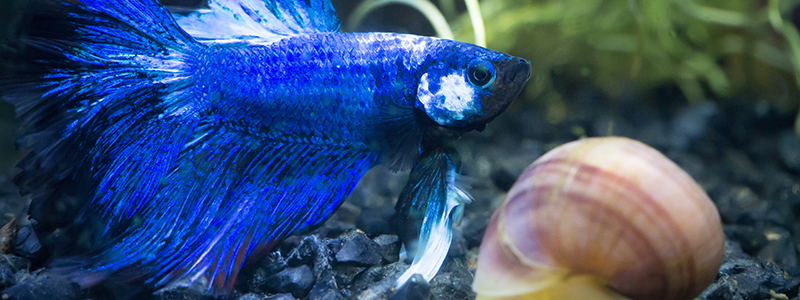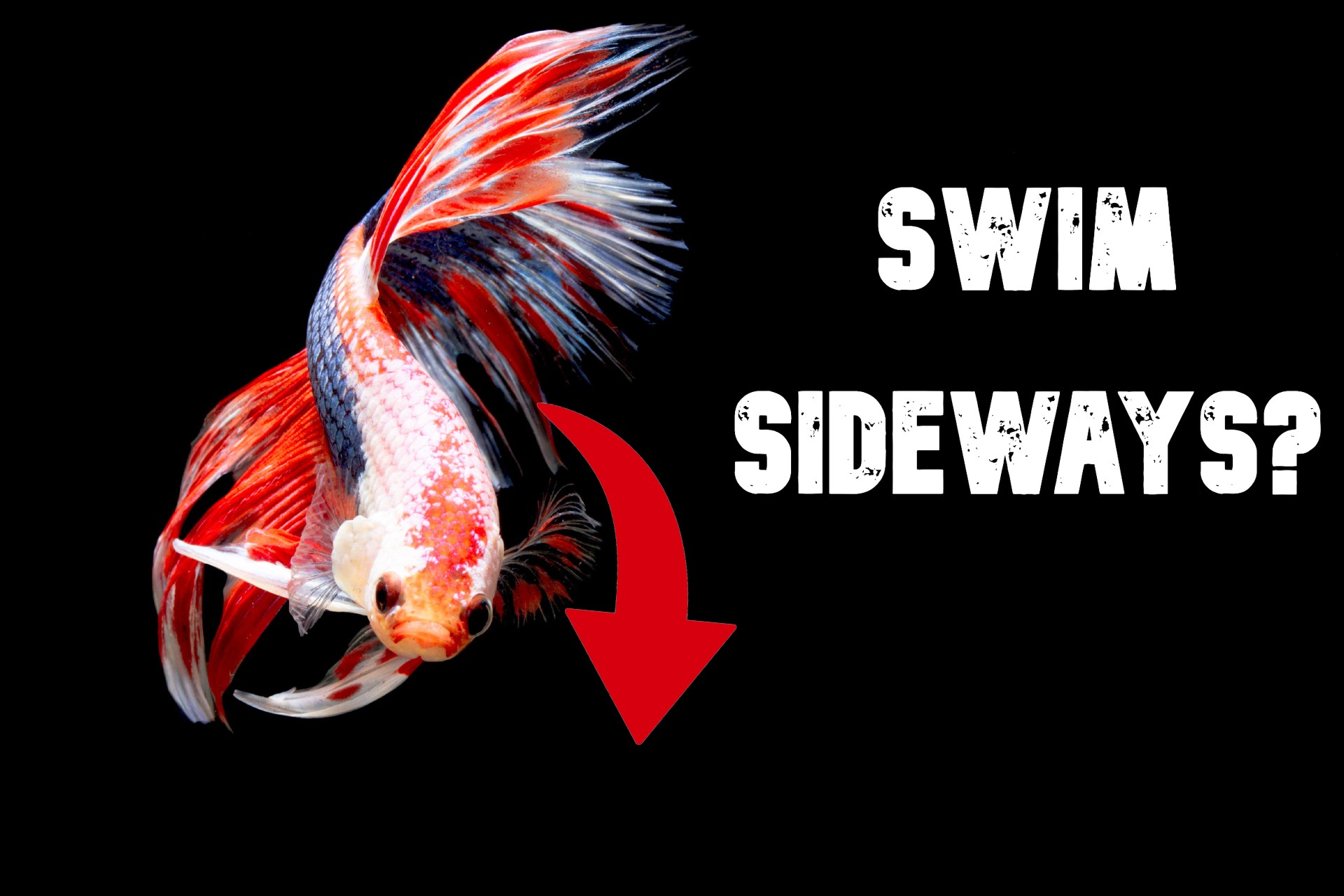Fishkeeping can become quite addicting. You start with a betta fish or goldfish and a 10-gallon tank…and suddenly you find yourself researching how to set up a 55-gallon tank. Don’t worry, you’re not alone. I myself have gone through that phase as well as many others. With all of the different species, one can have, it can be a bit of a stressful event to get all of the food and supplements needed. This begs to ask: can Bettas eat goldfish food?
In short, bettas can eat goldfish food but it’s not very kind to their digestive system and does not suit their carnivorous nature since goldfish foods usually contain a significant amount of plant matter. Fortunately, there are some other options you can explore to help keep your fish on a similar diet, like live feeding and the addition of treats that can prove to be mutually beneficial!
Let’s take a bit of a closer look and explore the different ways you can approach consolidating your aquatic feedings.
Can Bettas Eat Goldfish Flakes?
Technically, yes, Bettas can eat goldfish food. That being said, it is not a viable source of nutrients and should not be given long-term or really at all if possible.
While Bettas and goldfish are both fish, their needs vary drastically. Bettas are carnivores, meaning they need protein. Goldfish, however, are omnivores who can feed on meat and plant matter happily and healthily.
Bettas need a much higher need of protein and generally do not thrive when being given the plant matter-based goldfish flakes. The goldfish foods lack basic nutrients that Bettas need to survive and contain a lot of things that are unnecessary for the average Betta diet.
A Comparison of What Bettas and Goldfish Eat in the Wild
When you examine Bettas and goldfish in the wild, it becomes very clear just how different the dietary needs of these two animals are. In fact, there are very few similarities at all!
In the wild, Bettas primarily eat insects. They typically reside in still, perhaps even slightly stagnant water. This makes for the perfect place for insects to drop in and lay their eggs. Bettas wait below the surface and snatch up the insect as it drops down to lay or they just wait until the larva begin hatching and gobble them up.
Bettas also love smaller crustaceans like brine shrimp and will happily eat them thanks to their sharp little teeth. Even smaller fish fry are on the menu if a Betta can get to them! They are truly little tanks who love meat.
Goldfish, however, live a bit of a different life. They are omnivores, meaning they will eat all of the things listed above plus some plant matter. They even feast on detritus, a combination of dead and rotting plant and animal matter that sinks to the bottom of the water.
In captivity, Bettas are usually fed pellets comprised of fish and shrimp matter. Goldfish flakes usually contain a significant amount of plant matter, which can be detrimental to the health of a Betta in the long run.
Do Bettas and Goldfish Share Any Aspects of Their Diets?
If you want to try feeding your fish the same foods, perhaps opt for live feeding. This gives you the option to feed both things like brine shrimp and mosquito larva and cut down on the number of differences between the two creatures’ care, simplifying everything. All you have to do is supplement the goldfish’s diet with some plant fiber like green peas and you are all set!
If live feeding is not your thing, you could opt for frozen or freeze-dried foods. These are especially good if you do not have the space to keep live insects or want to cut down on care costs, as they can be purchased rather cheaply in bulk.
Do Bettas and Goldfish Benefit from Live Feedings?
Both the Betta and goldfish will actually benefit greatly from receiving insects as their food. Many pellet or flake based foods actually lack in vital nutrients and minerals that are usually gained from the exoskeletons and organs of insects and crustaceans.
A varied diet also helps mimic the natural environment of your fish, enriching their lives and helping them thrive. This is a goal that all fish owners should shoot for since it helps keep their pets the most comfortable and prevents stress.
Live Feeding Compared to Betta Pellets
Bettas are frequently fed pellets in captivity. These products act as a sort of nutrient block, much like that given to mice and rats. It is a one-two punch of all of the nutrients they need with none of the mess and fuss.
Unfortunately, pellets are terribly boring and not really all that great for your Betta. The pellets absorb water and can expand within your Betta’s body, resulting in constipation, swim bladder disease, and a host of other health issues.
They also often frequently contain fillers and are nutritionally comparable to goldfish flakes, which we have established as a no-go for Bettas as a whole. If you want to go for something truly nutritious and beneficial for your pet, try live or frozen feeding.
If you have to stick to pellets, try soaking them before giving them to your fish. Just pop them into some tank water for around ten minutes so they will expand before entering your fish’s body. Alternatively, you could seek out some of the nicer, higher-end non-expanding pellets, if you have the budget to swing for such a thing.
Can You House Bettas and Goldfish in the Same Tank?
Joint housing or cohabitating goldfish and Bettas seems like a way to really simplify your care routine. If they are in the same tank, they will be much easier to feed at the same time and move on with things, right?
There are actually quite a few reasons you should not house your Bettas and goldfish together.
For starters, they have entirely different requirements. Goldfish call for cooler waters and can tolerate between 64 degrees and 74 degrees while Bettas do best if their temperatures do not dip below the 76 degree threshold.
Additionally, goldfish are very high waste animals and can cause ammonia spikes if not properly monitored. These ammonia spikes can be fatal to Bettas must sooner than to the goldfish since they are more sensitive to tank changes.
Due to this high waste production, you have to change a goldfish’s water more frequently and remove more at each cleaning. This can cause a significant amount of stress to the Betta, which, in turn, can result in them more easily becoming ill.
Bettas are known as Siamese fighting fish in some areas. This is because they are very territorial and aggressive. Bettas will frequently attack other fish in their tanks, especially larger fish like goldfish. This can result in stress and damage to both fish, which can be fatal. Goldfish also are fin nippers who will take bites out of your Betta’s long, luxurious fins if given a chance, too.
Lastly, just as Bettas should not eat goldfish food, goldfish can actually die from eating Betta food. Their bodies cannot process the high levels of protein, which means they can easily become constipated. When this happens, they may develop swim bladder disease or even dropsy, which can be fatal.
Can Bettas Eat “People Food”?
Click here to read my full article about bettas and people food.
Some people like to give their goldfish a bit of “people food” in the form of bread, crackers, meats, tuna, or fruit. While goldfish adore this, Betta owners are to be a bit more wary of what they feed their Betta.
Bettas tend to enjoy the occasional sweet fruit like mango or kiwi from time to time but this should only be given every few weeks as a treat. They should never be given citrus fruits since the acid can be fatal. Additionally, remove any uneaten fruit after twenty minutes so it does not begin to rot and pollute the tank.
Meats are generally fine so long as they are uncured and of good quality without any seasonings or sodium. Tuna should be fresh or brine/freshwater packed with no preservatives if loaded into a can.
Some vegetables like lettuce and green peas can prove beneficial since they contain a high level of fiber. Feel free to give some once a week or so if your Betta is interested. Avoid carrots and other non-green veggies. Despite being popular with goldfish owners, the nutrient content within these foods do not usually mesh well with the digestive system of a Betta and can be rather harsh, leading to your fish becoming ill.
Crackers and bread should be treated similarly. If given, it should be a very rare treat since it is more empty calories than an actual, viable food source. Treat these sort of snacks like a pellet and soak them before giving them to your fish to prevent constipation and bloat. Additionally, give these very, very sparingly since they contain a lot of fats and oils which can be rather bad for your pet.
Conclusion
Your Betta should not be given goldfish flakes as a regular part of their diet. If you want to feed your fish similar foods, opt for live feedings or feed frozen or freeze-dried meals to cut down on expenses while maintaining your pet’s health. Both will benefit from this change, especially if you supplement the goldfish’s diet with green plant matter.
